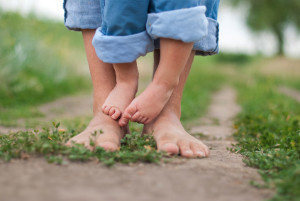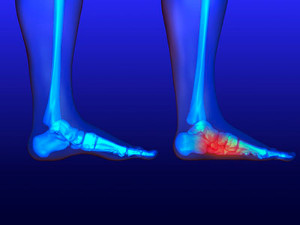While onychomycosis (toenail fungus) is a common condition, it can be rare among infants and children. This is because children’s nails are smaller and grow faster—making their toenails less hospitable to the fungus. However, when pediatric onychomycosis occurs, it should be dealt with swiftly and properly, as it is not good for a child to have any type of infection. Of course, prevention is always the best option, and something that should be highlighted as most children contract onychomycosis from someone in their own home. Don’t share toenail clippers, soap, towels or other personal grooming items with your child. Encourage them to keep their feet clean and dry, and to always wear clean socks and shoes, as well as flip-flops in public showers, locker rooms and around pools. If your child does develop toenail fungus, understand that what may be appropriate treatment for an adult, may not be safe for a child. If your child’s nails are thickened, brittle, crumbling, or yellowish, bring them to a podiatrist to receive an accurate diagnosis and proper treatment.
The health of a child’s feet is vital to their overall well-being. If you have any questions regarding foot health, contact one of our podiatrists of Foot Health Center of Merrimack Valley. Our doctors can provide the care you need to keep you pain-free and on your feet.
Tips for Keeping Children's Feet Healthy
- Make sure their shoes fit properly
- Look for any signs of in-toeing or out-toeing
- Check to see if they have Clubfoot (condition that affects your child’s foot and ankle, twisting the heel and toes inward) which is one of the most common nonmajor birth defects.
- Lightly cover your baby’s feet (Tight covers may keep your baby from moving their feet freely, and could prevent normal development)
- Allow your toddler to go shoeless (Shoes can be restricting for a young child’s foot)
- Cut toenails straight across to avoid ingrown toenails
- Keep your child’s foot clean and dry
- Cover cuts and scrapes. Wash any scratches with soap and water and cover them with a bandage until they’ve healed.
If you have any questions, please feel free to contact one of our offices located in North Andover, and Tewksbury, MA . We offer the newest diagnostic and treatment technologies for all your foot care needs.











